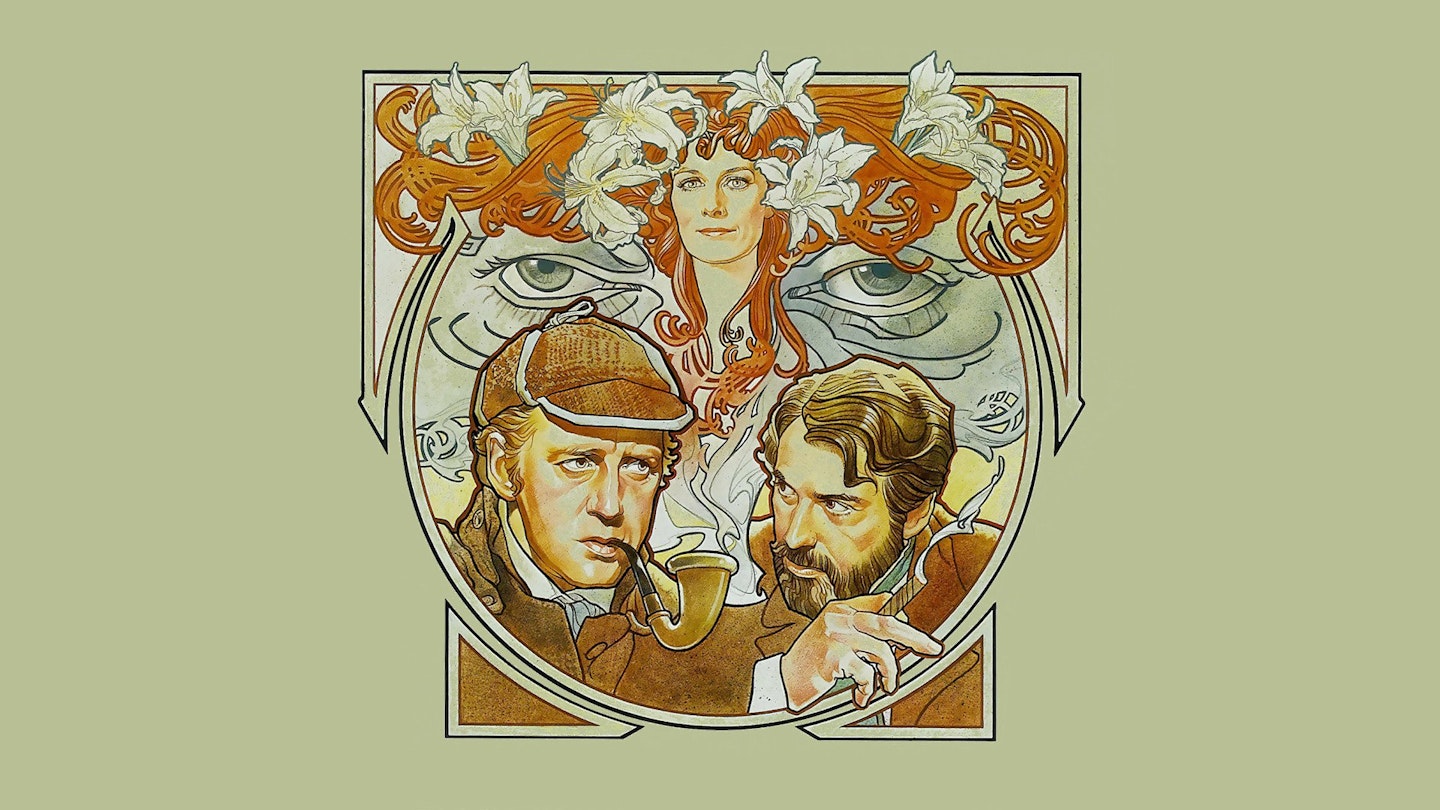Revisionist takes on Baker Street's most celebrated resident were all the rage in the early 1970s. But, whereas Billy Wilder's The Private Life of Sherlock Holmes and Gene Wilder's The Adventures of Sherlock Holmes' Smarter Brother were primarily lampoons, this was a serious attempt to get inside the mind of the brilliant, but troubled sleuth.
Having failed to persuade his psychologist father to write a book about Holmes and the appeal of mystery fiction, Nicholas Meyer took advantage of a screenwriters' strike to research Sir Arthur Conan Doyle's stories. He even met with the Baker Street Regulars fan club to discuss his ideas before publishing a bestselling novel, whose title referred to the 7% cocaine, 93% water solution with which Holmes frequently injected himself.
Conan Doyle's executors, Baskerville Investments Ltd., took some persuading to license the use of its flawed hero, but they finally consented, unlike Anna Freud, who was so opposed to the project that she insisted on being reinvented as a son for the screen version.
A splendid cast rose admirably to the script's challenges, with Robert Duvall's capable Watson contrasting sharply with Nigel Bruce's avuncular bumbler and Nicol Williamson intensifying the hint of latent menace that had informed Basil Rathbone's otherwise rigidly controlled interpretation. Laurence Olivier also cleverly traded on the malevolence he had generated in Marathon Man to turn in a mischievously misleading performance as Moriarty.
However, the star turns were production designer Ken Adam's London and Vienna sets, which avoided the usual period clichés to produce vibrant cities whose grandeur hid sinister secrets. The picture was also to have boasted a Bernard Herrmann score, but, having just finished work on Taxi Driver, he succumbed to his final illness and the estimable John Addison stepped in, with whodunit aficianado Stephen Sondheim contributing `The Madame's Song'.
